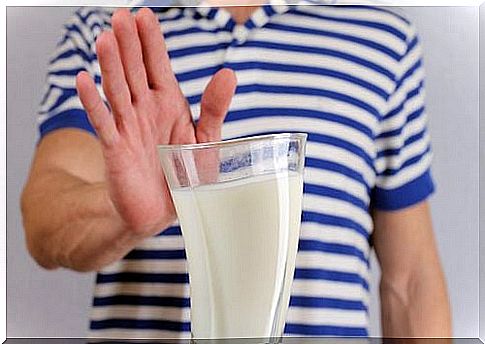Benefits And Risks Of Drinking Milk

We have always been told how consuming milk is necessary to grow and maintain bones, teeth, and all calcium-containing structures. However, there are a few serious health problems associated with the consumption of milk and its derivatives.
Admittedly, milk doesn’t bring with it just bad news, as consuming milk can also provide many of the health benefits we’ll list up in this article.
Milk has been part of the human diet in most civilizations for thousands of years. In fact, its part in the human diet began as early as about 11,000 years ago with the domestication of livestock.
Milk from cows, sheep, goats and buffalo is mainly used for human consumption. In addition, some people prefer to drink, for example, donkey or even camel milk.
Dairy products for human consumption are generally treated by either a homemade or industrial heat treatment known as pasteurization. These processes also cause small differences in the composition of the milk.
Drinking milk: benefits

Milk is one of nature’s most important sources of calcium and the only food source for a small baby. Calcium is an essential mineral for the formation and maintenance of bones and teeth, among other things.
In addition to calcium, consuming milk provides us with other very valuable elements, which is why it is one of the most holistic foods today.
Milk is used as a raw material in the manufacture of many different dairy products such as butter, cheese, yogurt, cream or puddings. Since the most widely consumed milk in the world comes from cows, in this article we will focus specifically on studying the composition of cow’s milk:
- Water: Water is the main ingredient in cow’s milk. It accounts for about 80-87 percent of milk.
- Carbohydrates: Lactose makes up virtually all the sugar in milk and it is this component that is one of the most important risk factors for drinking milk.
- Proteins: Proteins are considered to be a compound of high biological value and contain a large number of essential amino acids. They make up about 3-4 percent of milk.
- Fats: The proportion of fats in milk is about 3-6 percent, although this proportion varies greatly with the breed of cow and the diet given to the cow. 90 percent of milk fats are triglycerides.
- Vitamins: Among the vitamins contained in milk, vitamins A and D as well as riboflavin (B2), cyanocobalamin and thiamine stand out.
- Minerals: Milk has a very high mineral content and these minerals are usually present in the form of salts. Milk contains, among other things, calcium, potassium, phosphorus, iodine, sodium, chlorine, magnesium and zinc.
Ingestion of milk: risks
As we mentioned at the beginning of the article, there are also a number of different risks associated with drinking milk that are important to consider. Among them we can mention the following:
1. Lactose intolerance

As many as any other person may have lactose intolerance. As we now know, lactose is the main sugar in milk. However, most people do not even know they suffer from lactose intolerance and therefore continue to drink milk.
It is estimated that up to 70% of the world’s population suffers from lactose intolerance. In this way, this intolerance is not a disease, but a completely normal human condition.
This is because at the age of 2 to 4, our bodies slowly begin to stop synthesizing the enzyme lactase, which in turn is responsible for digesting lactose.
By continuing to drink milk, the body no longer breaks down lactose and it remains in the intestine, where bacteria in the colon make it ferment and thus cause various symptoms such as gases, pain and sometimes even diarrhea.
2. Poor absorption of calcium
Ingestion of animal proteins causes the pH of the blood to become acidic, in response to which the body removes some of the calcium in the bones to neutralize this acidity. It has been shown that ingestion of dairy products or products containing calcium is not a protective factor against the risk of fractures.
Milk contains nutrients necessary for the body, but to get them we do not need to drink milk. In fact, for calcium intake, for example, we can recommend a variety of vegetables that are rich in that mineral.
3. Drinking milk increases the risk of allergies and asthma
Cow’s milk contains three times more protein than human milk and it is often difficult for the human body to digest some of these proteins.
In some people, these thick proteins (such as casein) attach to the intestinal lymphatics, thus preventing the absorption of nutrients. In this way, they can cause disorders related to human resistance, such as allergies and asthma.
Finally
If you are not sure if you are suffering from lactose intolerance, it is important to find out as soon as possible so that you can prevent the complications of drinking milk. Consuming milk for people who do not suffer from lactose intolerance is beneficial due to the health benefits it brings. However, as with any other food, it is important to remember to drink in moderation, as no food is good in excessive doses.









